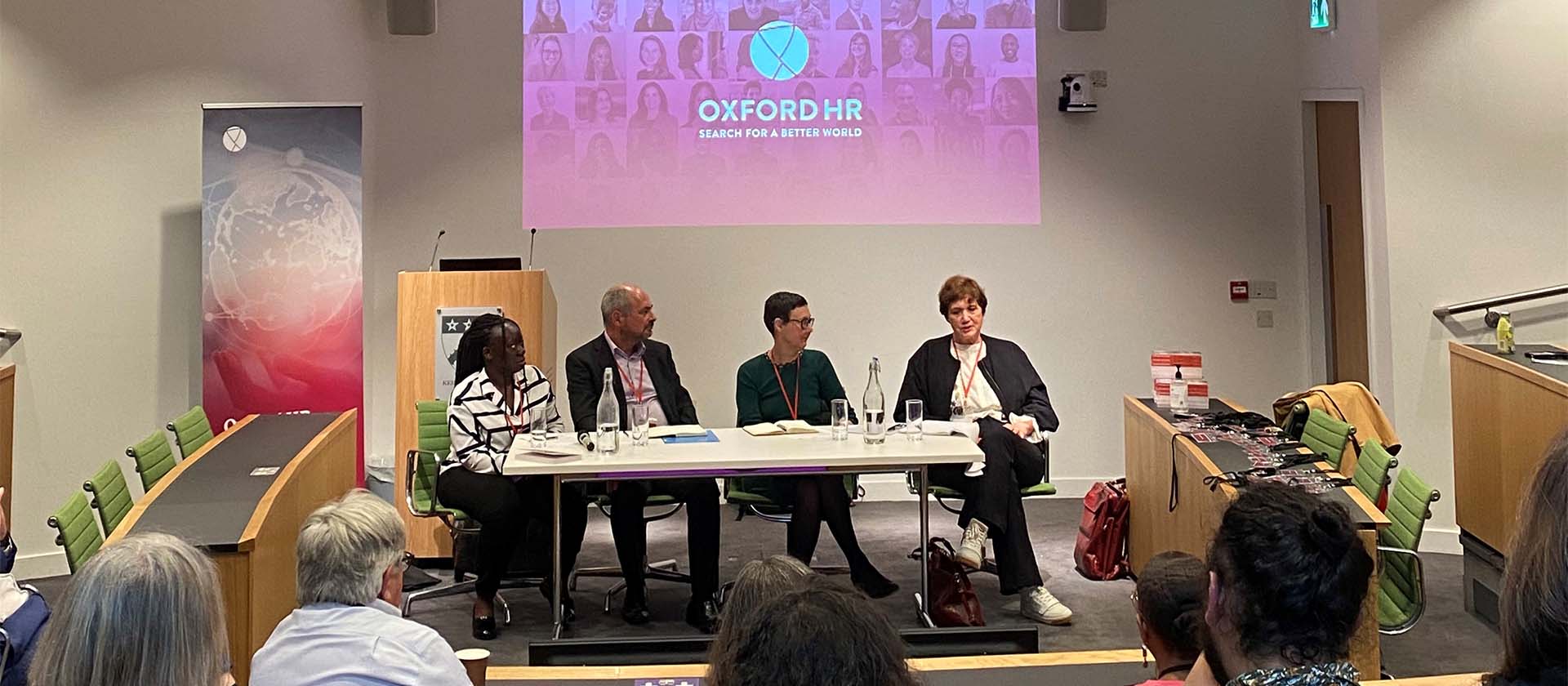Interim leadership roles in international development organisations require a unique blend of skills, experience, and qualities to navigate the challenges and opportunities that come with such positions. While the duration of these roles may be temporary, their impact on an NGO’s mission and stakeholders can be substantial. During our panel discussion on the Role of the Interim in Sustaining Purpose-Led Organisations, we were fortunate enough to gather some key insights into the essential traits of these leaders, in addition to how to navigate some of their most pressing challenges.
Panel:

Dr Grace Mansah-Owusu
Organisational Psychologist, Oxford HR

Yolanda Weldring
Associate Director, Interim Management, Oxford HR

Sarah Roberts
CEO, Practical Action

Mark Wilson
Becadia Consulting
1. The empathetic leader
Interim leaders must quickly build trust with staff, volunteers, donors, and other stakeholders to effectively lead during times of transition or crisis. By demonstrating empathy, understanding, and genuine concern for others’ feelings and perspectives, leaders with high emotional intelligence can establish credibility and foster stronger relationships. Regarding relationships with the Board, Interims must prioritize transparency to ensure that all parties are on the same page for the benefit of the organisation. Simply put, interim leaders in the international development space need to build bridges quickly, and empathetic leadership skills are key.
“You must project humility” – Mark Wilson
2. The critical friend
At the end of an interim’s tenure, organisations should be left with a team that has grown and developed. This means that the interim leader needs excellent communication skills and be able to navigate conflict with expert precision, in addition to manage stress and remain calm under pressure, but also encourage others to do the same. They should create a supportive environment where morale can be boosted, and teams can feel empowered. Furthermore, in the international context, understanding and respecting cultural differences is crucial.
“All the best interims have a coaching mindset” – Sarah Roberts
3. Time is of the essence
A key takeaway is that the interim is not a protected role; often they are entering a less than optimal environment and they must adapt quickly with little to no time for onboarding. In some instances, internal interims have the edge because they are already aware of internal challenges. However, external interims can bring fresh perspective and speak more freely. Oxford HR maintains a pool of qualified and available interims for this reason; they can hit the ground running after a short recruitment process, due to our thorough pre-screening process.
For more information about our Interim Pool, please contact Yolanda at yweldring@oxfordhr.com or visit Our Interim Placements webpage.

Ruth Davis
Ruth joined Oxford HR in 2018 after graduating from the London School of Economics and Political Science. She is particularly passionate about social impact and how purpose-led businesses can communicate their impact. Working within the communications team at Oxford HR, Ruth works on supporting regional hubs with their marketing needs in addition to content creation and partnerships. She also leads on measuring Oxford HR’s impact as a business and is part of the BCorp working group.
Ruth holds a Certificate in Professional Marketing from the Chartered Institute of Marketing, a Certificate in Project Fundamentals and is learning French. She is currently studying MSc Sustainable Development at the University of Sussex/Institute of Development Studies.



